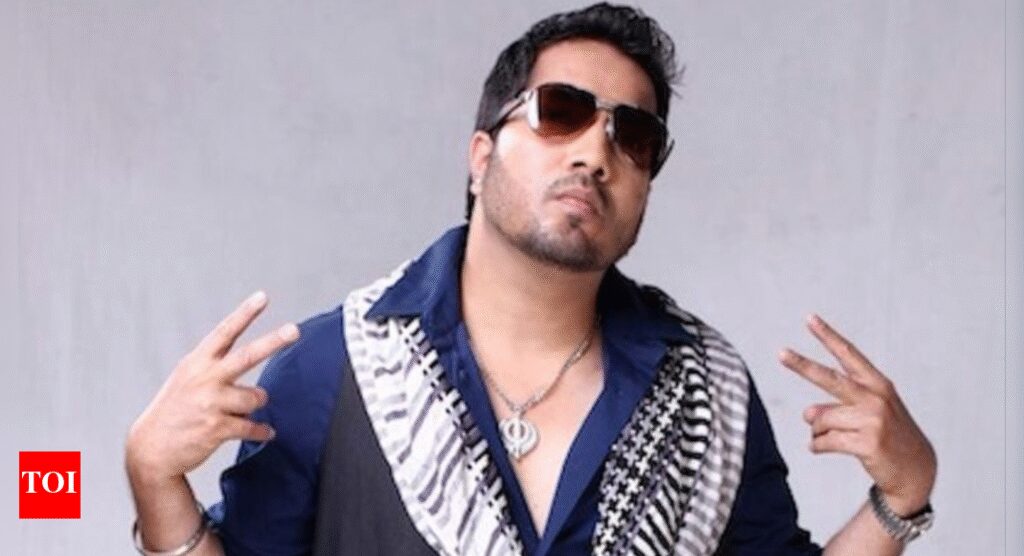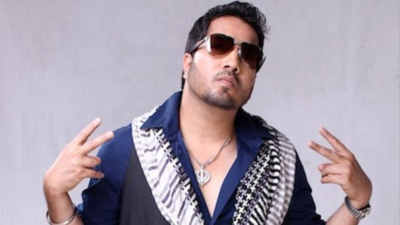Popular singer Mika Singh has been a prominent voice in Bollywood, known for hit songs such as ‘Aaj Ki Raat’, ‘Subah Hone Na De’, ‘Dhinka Chika’, ‘Ganpat’, ‘Jumme Ki Raat’, and ‘Pushpa Pushpa’. His powerful and distinctive voice has earned him a large fanbase, but he has also been no stranger to controversy due to his outspoken nature.
Recently the ‘Aaj Ki Party’ singer opened up about one of the most talked-about moments in his career — the time he was banned for performing in Pakistan after the 2016 Uri attack. Speaking on Shubhankar Mishra’s podcast, he got candid about how the industry treated him and why he feels there are double standards when it comes to cross-border work.
Honey Singh Atif Aslam ke sath koi gaana kar raha hai
Mika expressed how being famous sometimes makes you an easy target for criticism. Without naming anyone directly, he referred to buzz around Pakistani actress Hania Aamir reportedly working in Diljit Dosanjh’s film. He also pointed out that Honey Singh was seen collaborating with Pakistani singer Atif Aslam recently, but no one raised an issue.
Mika said, “Ab Diljit ke movie mein koi Pakistani heroine arhi hai, pata nahi arhi hai ya nahi arhi hai, usme koi controversy nahi. Ispe bhi 2 kalakar hai. Kahin log great singer hai aur koi popular hota hai toh faraq padhta hai ki kispe maza ayega usko baat karke. Uske baad bhi Honey Singh Atif Aslam ke sath koi gaana kar raha hai. Agar main kuch karunga toh unko lagta hai ki haan yaar yahan se chingari uthegi.”
(“Now in Diljit’s film, there’s talk of a Pakistani actress joining—no one knows if she’s actually coming or not—but there’s no controversy around it. There are two kinds of artists in this industry. Some are great singers, and others are just popular. So it depends on who will make things more entertaining to talk about. Even after all this, Honey Singh is doing a song with Atif Aslam. But if I do something similar, they feel like, ‘Yes, this will spark controversy.’”)
Banned for a wedding gig
Mika recalled how he travelled to Karachi in 2016 with a legal visa to sing at a private wedding. However, since it came just after the tragic Uri terror attack, people back home were outraged. The Federation of Western India Cine Employees (FWICE) banned him temporarily. The ban was later lifted when Mika gave a formal apology.
He further added, “Abhi Pakistan jaane ke liye ban nahi hona chahiye, abhi shows ke liye aapne kaha hai nahi hona chahiye, thik hai, nahi karenge aage se. Par iske liye govt kuch nahi keh rahe hai. Toh ye kaunsi janta suddenly tum pe tha tha thok dete, ye nahi samajh aata. Main sabka favourite hoon. Sab keh rahe hamare taraf dhyan do bhai. Phir main deta hoon, phir kehte hai thik hai.”
(“Right now, there shouldn’t be a ban on going to Pakistan. You said there shouldn’t be shows, fine, we won’t do them from now on. But the government hasn’t said anything about this. So I don’t understand which public suddenly starts attacking you like this. I’m everyone’s favourite. Everyone says, ‘Pay attention to us, brother.’ Then I do, and then they say, ‘Alright, fair enough.’”)
Ban on Pakistani artists in India
The Uri attack in 2016 and the subsequent Pulwama attack in 2019 led to a significant tightening of restrictions on Pakistani artists working in India. Many film and television organisations imposed bans on Pakistani actors and singers, reflecting the heightened political tensions between the two countries.
While there was some relaxation in recent years, with reports of renewed collaborations such as Diljit Dosanjh and Hania Aamir’s project, and the scheduled release of Pakistani actor Fawad Khan’s Indian film ‘Abir Gulaal’ in May 2025, the recent attack in Pahalgam has once again hardened attitudes. Several film bodies have reiterated that Pakistani artists are not allowed to work in India, putting projects like ‘Abir Gulaal’ on uncertain ground


